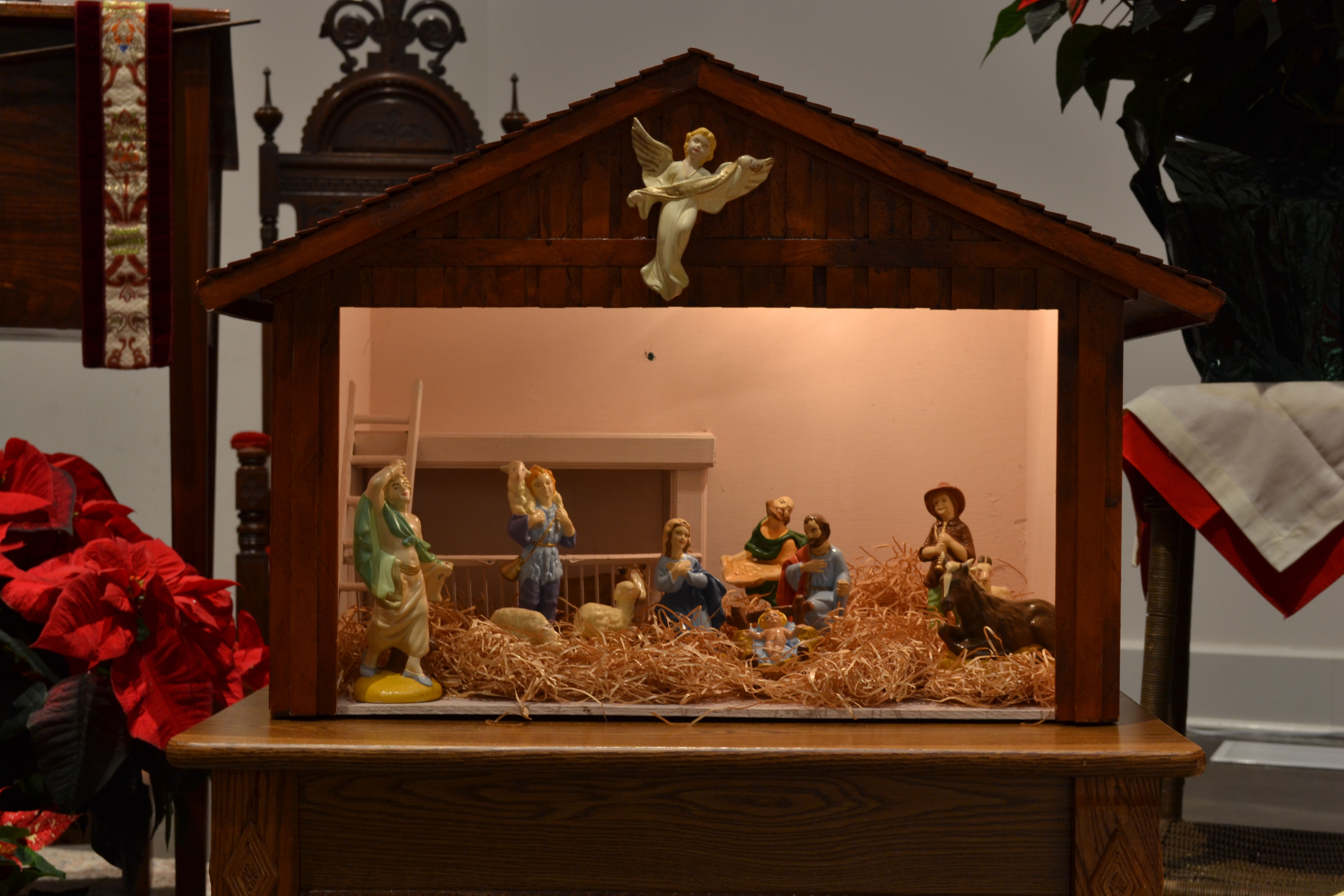If in your heart you make a manger for his birth,
then God will once again be born on earth.
Possible things are easy to believe. The Glorious Impossibles are those things that bring joy to our hearts, hope to our lives, songs to our lips.
The birth of Jesus was a Glorious Impossible. Like love, it cannot be explained, it can only be rejoiced in.[1]
Thus begins Madeleine L’Engle’s gorgeous picture book detailing the birth, life, death, and resurrection of Jesus the Christ.
Today we celebrate that Glorious Impossible with the Feast of the Nativity, when we tell one of our most sacred stories, about the time when God became flesh and lived among us.
Many more eloquent than I have tried to explain the Incarnation, some of them hitting the mark astoundingly well, and if you’re interested in beautiful and deep words I will point toward them.
But I err on the side that L’Engle does – the Incarnation cannot really be explained, it can only be rejoiced in. And what’s more – I believe it is meant to be lived.
For we celebrate o this day that time was changed, from “those days” as Luke tells us at the start of today’s Gospel, to “this day” when the angel appeared singing the good news to the shepherds.
When God became flesh we understand that time is no longer simply chronos, but is kairos.
Kairos, that ancient Greek word meaning the right or opportune moment – the supreme moment if you will.
While chronos refers to chronological time, kairos points toward a time lapse, a moment of indeterminate time in which everything happens.[2]
When Jesus was born a new age began, and with it a person both fully divine and fully human who would show us the way.
As those who choose to follow Christ, the Glorious Impossible beckons us to rejoice and live that love so profound, it was born on earth.
Even on a day of rejoicing and song and joy such as this, a love that deep is hard to fully imagine, let alone understand how to live.
And so as I often do when I feel these things in the center of my being, but don’t have the words to elaborate, I turn to the poets.
In her poem “Messenger” from her book Thirst, I believe Mary Oliver captures a distillation of the incarnation and our work of living it.
My work is loving the world.
Here the sunflowers, there the hummingbird –
equal seekers of sweetness.
Here the quickening yeast; there the blue plums.
Here the clam deep in the speckled sand.
Are my boots old? Is my coat torn?
Am I no longer young, and still not half-perfect? Let me
keep my mind on what matters,
which is my work.
which is mostly standing still and learning to be
astonished.
The phoebe, the delphinium.
The sheep in the pasture, and the pasture.
Which is mostly rejoicing, since all the ingredients are here,
which is gratitude, to be given a mind and a heart
and these body-clothes,
a mouth with which to give shouts of joy
to the moth and the wren, to the sleepy dug-up clam,
telling them all, over and over, how it is
that we live forever.
~ AMEN ~
[1] The Glorious Impossible by Madeleine L’Engle.
[2] Definition adapted from Wikipedia.


